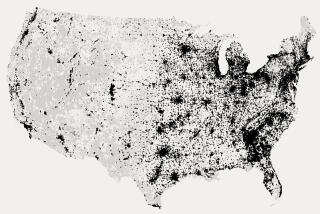Checking in on the NRA
Today’s topic: Gun-control advocates have been very vocal in the wake of the recent shootings in Pittsburgh and New York state, and in some cases have blamed the violence partly on the National Rifle Assn. The NRA, by contrast, has been largely silent. Where’s the NRA?
Complete Dust-Up: | Day 2 |
The NRA is smart to lay low while gun-control groups seize the spotlight
Point: Richard Feldman
I certainly wasn’t surprised that gun-control groups like yours, Paul, would use these mass murders as a high-visibility media hook to discuss banning guns and far more onerous restrictions for everyone, as you used to say, “if it only saves one life.” But blaming the violence on the National Rifle Assn. is like blaming driving fatalities on the American Automobile Assn. Trust me, anyone who reads my book, “Ricochet: Confessions of a Gun Lobbyist,” knows I am anything but an NRA apologist. You’re playing the exact game that I accuse NRA of engaging in -- namely, “it’s all about fundraising.” You too would rather fight than win.
The NRA is playing very smart public relations right now. Why would any pro-gun organization want to weigh in and confuse their arguments about legitimate gun ownership rights following the demented, criminally insane and unlawful use perpetrated by the shooters in Pittsburgh and Binghamton, N.Y.? I can’t fathom how it would be useful for any gun-rights organization to visibly engage in this moment of public grief and sorrow.
On the other hand, I do understand why this is the best opportunity for the Brady Campaign and other gun-control groups to try to capture the emotional disgust of this national tragedy and divert people’s attention away from the very complicated issues of mental illness and criminal access to easily vilified inanimate objects -- guns. I’m sure these efforts will result in an excellent direct-mail fundraiser, and I’m equally certain your consultants are hard at work preparing the fundraising packages to drop in the mail because this issue won’t stay hot for terribly long. Both ideological sides of this seemingly never-ending debate hope that the American people never focus on the real problem, allowing groups to continue to engage in pitched battles over slogans.
One thing we must recognize is that widespread firearms ownership in this country is here to stay. There are four main reasons to own guns: for sport and target shooting, for hunting, for protection and for collecting. I have never met a gun owner who wanted violent predatory criminals or deranged individuals to have lawful, easy access to firearms. In other words, what are we fighting about? Americans are in very substantial agreement on the big issues.
Yesterday, Paul, you raised the gun-show issue. I agree with you on this, as do most gun owners, but the key is in orientation and semantics. When gun-control groups say they want to “close the gun-show loophole,” gun-rights organizations hear “we want to ban gun shows and make civilian transfers very difficult.” I propose that we support and Congress introduce and pass a bill; let’s call it the Gun Show Preservation and Protection Act of 2009. The bill allows, no, encourages gun shows but sets up a system in which buyers from a civilian dealer (in other words, a gun-show dealer who isn’t part of the Federal Firearms License network) go through the same FBI background check system that they would if they were buying from an FFL dealer. The law wouldn’t prevent the purchase or sale of any guns to or from anyone who could buy that gun from a FFL dealer. Its overall impact would be minuscule, but it would prevent convicted felons and adjudicated mental cases from buying guns at gun shows; no seller wants to transfer their guns to them anyway.
What do you say, Paul? Would you be willing to give up the nice polemics in exchange for zeroing in on a narrow and politically agreeable solution?
Richard Feldman is the author of “Ricochet: Confessions of a Gun Lobbyist.” Previously, he was executive director of the firearms industry’s trade association and a regional political director for the National Rifle Assn.
Surprise: We agree on something. But the NRA remains stubborn
Counterpoint: Paul Helmke
Richard, I’m not sure who or what you’re talking about in the first half of your post. The Brady Campaign’s proposals don’t involve banning all guns or creating “onerous restrictions for everyone,” and we certainly would rather “win” than “continue to fight.” I hope all of us would be willing to put up with a little “red tape” if it would help stop all the yellow police tape we see at crime scenes from going up.
Your proposal to set up a system in which all buyers of guns go through the same FBI background check system is exactly what we’ve been proposing. This would finally close the gun-show loophole. If the gun owners in this country really do agree with us on this point, let’s put the pressure on our policymakers to adopt this rule now.
As you suggest, there are a number of complicated causes that contribute to the gun violence in this country, and I’m committed to focusing on the “real problem” and finding solutions. Remember, the U.S. Supreme Court said last summer in its District of Columbia vs. Heller decision that the idea that any person can buy any gun, any time and anywhere was not consistent with the 2nd Amendment; at the same time, the majority found that near-total gun bans were unconstitutional. This means the extremes of the gun-control debate are now off the table, and we should have an easier time reaching an agreement. After all, the Supreme Court removed the possibility of the “slippery slope” that might lead to gun confiscation.
The problem is that the NRA hasn’t been willing to work with us to find common ground. After I started as president of the Brady Campaign, I wrote your former boss, Wayne LaPierre, and suggested that we meet. I said this could be private or public, at his place or my place or a neutral site, with staff or without staff, off the record or on. He never responded. I repeated this offer to him and to some of the other NRA bosses and never received any responses.
My offer still stands. I really do believe we can protect the 2nd Amendment rights of legitimate gun owners and still find ways to make it harder for dangerous people to get dangerous weapons.
Maybe we can agree on which guns should be available to the general public and which ones should not (right now, the only real restrictions are on fully automatic weapons such as machine guns). Maybe we can agree on some limit to the number of guns that can be purchased at one time (there are no federal limits right now). Maybe we can agree on better ways to catch and discipline the corrupt gun dealers who help facilitate the trafficking to illegal users (close to 60% of the guns traced from crime scenes come from just 1% of the dealers).
It’s tough, apparently, for the NRA leadership to interfere with the business model that pushes more guns into society, which generally leads to more violence, which then leads to more gun sales and then more violence. Gun manufacturers, dealers and the NRA leadership make money from these gun sales. The victims, law enforcement professionals and communities for whom we speak pay the price.
Richard, we both want to reduce gun violence. If our leaders just took the simple steps we’ve both discussed, we would see a change. I’d love to get to the stage where we could settle this issue and move on to something else. This is a solvable problem, but we’re going to need you and other gun owners to help push for solutions too.
Paul Helmke, a former three-term mayor of Fort Wayne, Ind., and past president of the U.S. Conference of Mayors, is president of the Brady Campaign to Prevent Gun Violence.
More to Read
A cure for the common opinion
Get thought-provoking perspectives with our weekly newsletter.
You may occasionally receive promotional content from the Los Angeles Times.






